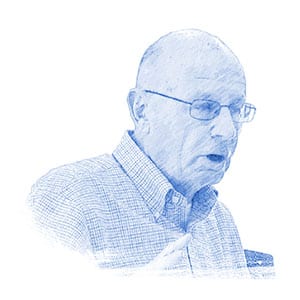There are both big and little issues in politics, and they compete to determine what we think and how we vote.
The big things get the headlines: war, hopes of peace, economic crises, large scale migration, natural disasters, major projects that cost a great deal and promise huge benefits, and personal tragedies boosted by the media so they touch our feelings.
The little things are what impact direct on us, family, and friends. To be politically relevant, they must be larger than what are purely personal, and somehow reflect the touch (or the absence of touch) coming from government.
It’s convenient to employ the notion of bubbles to think about these little things.
We all live in one bubble or another. Most live in several bubbles. One may reflect the traits of our neighborhood, and by implication our social class. Another may reflect our occupation. Yet another our ethnicity, gender, or religion, assuming they are important to us.
There’s also a bubble defined by nationality and a country’s borders.
And bubbles set around people who share ideologies, even if they are different on social or economic traits.
The significance of all these bubbles is what sets people off from one another (us as opposed to them), and gives us distinct interests.
The idea of the bubble came to me from reading notes from there and here, mostly from people who didn’t agree with me.
Several come from Americans who live well, and can’t understand reports about their country’s dismal social indicators, below all other western democracies on indicators of health, equality, and violence. Others come from Jews who are somewhere on the right of scales measuring religiosity or nationalism (often the same for Jews, who belong to a people as well as a religion).
Upscale Americans who write to me cannot accept the reality of their country’s overall traits or feel they are unimportant. They live well, and have decent health insurance. Some express an image of Europe that seems unchanged from the 1950s, i.e., much less attractive than the US, with too much government regulation, high taxes, and limited personal opportunities.
Some of the people in this bubble emphasize that there is little crime in their community, and that they travel safely to visit friends and family members who also live well and safely. They appear not be bothered by statistics showing their roads to be more dangerous than in other western democracies, and places not to far from theirs which are dangerous, and must be avoided on their journeys.
Israel is its own bubble, which includes other bubbles within it. What we can call sectorial bubbles are defined by ethnicity (Jew or Arab), religiosity, and degree of nationalism (applicable to both Arabs and Jews, and capable of producing political extremism).
Individuals may live and think most of the time in certain bubbles, but cross into others when provoked by events that are meaningful to them.
The issue of cross pressures is relevant. Israeli Jews can be led by their ideology to ridicule the style of Donald Trump, but also to applaud his changing the American posture away from the Muslim-friendly extremism of Barack Obama and what seemed to be promised by Hillary Clinton.
One big question is whether reasonable professionals will lead Trump to do good, or if the campaigner by tweets will direct the world’s most powerful country to disaster.
It’s the mix of bubbles surrounding us that determine what we’re likely to think and how we’ll vote.
Not a few individuals act in ways that are legitimate, but different from prevailing patterns for their bubble partners. Some years ago, British political scientists wrote about working class Tories. American equivalents are Black or Jewish Republicans.
There are other anomalies. It’s not possible to buy bread in the Jewish neighborhoods of Jerusalem during Passover. A reporter saw an Arab eating matzoh, and asked why. “The Jews are buying all the bread in our shops.”
Where bubbles get in the way is when people in them don’t know what’s outside.
There are Israeli Jews who can’t understand people who don’t agree that God gave all that the Bible describes as the Promised Land to the Jews. Not the least of the problems are three different definitions of the Promised Land. Apparently, the Torah did not all come from God, but from different composers who weren’t good editors of what others wrote.
Then there are Americans living the good life, who feel no awareness or responsibility for people living on the other side of whatever boundaries they carry around in their heads. Some of those Americans think their taxes–close to the lowest among developed countries–are too high, and are tired of their country exercising its power in international affairs. Isolationism has its attractions, whether expressed as keeping one’s army at home, or not venturing into neighborhoods more than a few blocks from one’s own.
At times those people are more than a statistical curiosity. A troubling example are coddled Americans who think Donald Trump is the best thing since John Adams.
They have every right to adhere to hoary American slogans, such as “Don’t tread on me,” However, not only do they qualify as so far from the norm as to be peculiar among the civilized, but the President they admire is also so far from the norm as to be dangerous with respect to international practices that have worked–imperfectly, but reasonably well–since 1945..
Or maybe he’ll be better than his tweets. Given what he did in Syria, but taking into account worries about impulsivity and how it may play out with respect to North Korea, we owe him at least this: ????
Reprinted with author’s permission from The Jerusalem Post




